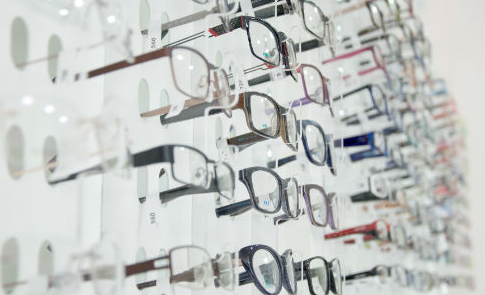Eye Spy


By Kevin Woo for the Brian Grant Foundation
I spy with my little eye something that begins with the letter “E.” If you have kids or grandchildren chances are you’ve played that game. For me, the thing that begins with “E” is eyesight.
Without my contacts or glasses I’m legally blind. That big “E” on the eye chart isn’t visible to me (truth be told, neither is the wall). These days my myopia isn’t a problem. I wear my contacts during the day, and my glasses at night. It’s a routine I’ve followed for more than 40 years.
Now that I have Parkinson’s, someday the routine will change. A few scenarios could take place. My hands could tremor enough to make it impossible to wear contacts, my head could start shaking making corrective lens surgery risky, or both could happen.
The easiest solution would be to abandon the contacts and wear glasses for the rest of my life. I don’t like that option. I prefer life without them.
How will I know that my hands are tremoring too severely to safely handle contacts? How will I know if my head is moving too much and I’m no longer a candidate for corrective lens surgery? How will I know which surgical procedure, LASIK or full lens replacement,is right for me?
Fortunately, I tackled these questions shortly after my diagnosis. I see at least one of my doctors once a month. If one of them notices that I’m tremoring more than usual they have been instructed to call my neurologist. He will make the decision about whether it’s time to fix my eyes.
I’ve decided against LASIK because sometimes the procedure needs to be touched up.
But there’s a statistic that weighed heavily in my decision to abandon the LASIK option. According to the Alzheimer’s Association 50-to-80 percent of all Parkinson’s patients experience dementia as the disease progresses. If I needed a LASIK touch up, develop cataracts, and have dementia, how will I know that something is going wrong with my vision?
Cataracts should be a concern of all seniors, and they should be of particular importance to those of us who have Parkinson’s. According to the Kellogg Eye Center at the University of Michigan 90 percent of all people over the age of 65 have a cataract, and those between the ages of 75 and 85 have some vision loss due to cataracts.
If a Parkinson’s patient has dementia, how will they know (and communicate) that their vision is impaired?
I’ve decided that when it’s time, I’m going to have my natural lenses removed because cataracts cannot form on an artificial lens. I think that given the options available to me today, lens replacement is my best option because new lenses will provide me with good vision through the rest of my life. Like all of us, as I progress with the disease I’ll have plenty of other things to worry about. The ability to see clearly shouldn’t be one of them.
I spy with my little eye something that begins with the letter “P.”
“Plan” ahead for the day when you’ll need clear vision to make decisions about other things in your future.
Kevin Woo is a freelance writer based in San Francisco. You can follow him on Facebook or visit his website at www.kevinjwoo.com.
This site uses Akismet to reduce spam. Learn how your comment data is processed.
Archives
- February 2019
- January 2019
- September 2018
- June 2018
- March 2018
- February 2018
- July 2016
- March 2016
- January 2016
- November 2015
- February 2015
- January 2015
- December 2014
- June 2014
- May 2014
- February 2014
- January 2014
- October 2013
- August 2013
- July 2013
- June 2013
- May 2013
- April 2013
- March 2013
- February 2013
- January 2013
- December 2012
- November 2012
- September 2012
- May 2012
- April 2012
- March 2012
- June 2009
Calendar
| S | M | T | W | T | F | S |
|---|---|---|---|---|---|---|
| 1 | 2 | 3 | 4 | 5 | ||
| 6 | 7 | 8 | 9 | 10 | 11 | 12 |
| 13 | 14 | 15 | 16 | 17 | 18 | 19 |
| 20 | 21 | 22 | 23 | 24 | 25 | 26 |
| 27 | 28 | 29 | 30 | |||
Leave a Reply